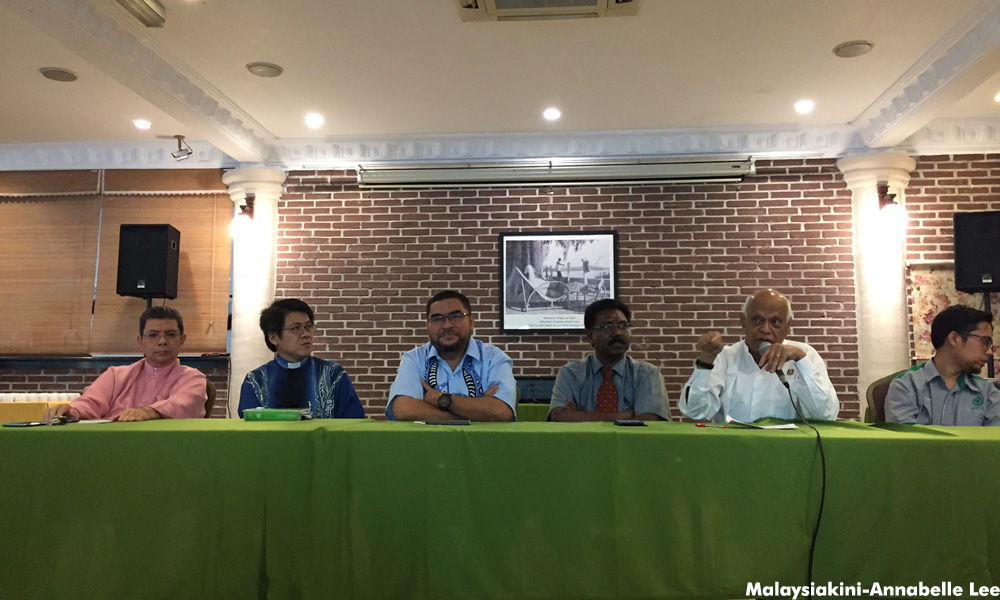
Religious leaders from various faiths spoke on the meaning of fasting at an interfaith forum organised by DAP MP Charles Santiago in Klang last night.
The dialogue, which drew together representatives from Islam, Christianity, Buddhism and Hinduism, was aimed at discussing the similarities Malaysians had holding them together, in particular during the month of Ramadan.
Amanah deputy chairperson Mujahid Yusof Rawa observed that people had been fasting long before Prophet Mohammad did.
“But why do Muslims fast?
“It’s for spirituality, to cleanse and purify ourselves in observance of God’s command so that we can have a better connection with God,” he said.
Mujahid stressed how Ramadan went beyond the act of fasting as an opportunity for Muslims to develop peace in their hearts, which would eventually lead to a society of more peace-loving people.
“Becoming more religious does not mean hating others, rather it means to love others,” he said.
Echoing Mujahid’s call to focus on reasons behind the act of fasting, Methodist pastor Gary Yeoh read passages from the Book of Isaiah in the Bible that discussed the differences between “true fasting” and “fake fasting”.
“It’s very easy for fasting to become mechanical. We should look at the heart and motive behind the act.
“True fasting is all about developing our relationship with God,” he said.
In Buddhism, fasting was also about attaining spirituality, said Vijaya Samarawickrama of the Buddhist Maha Vihara.
“We fast to deny the body its demands, to remember the dichotomy between body and spirit,” he said.
Vijaya emphasised how the act was more a personal commitment to God than a requirement.
“It should not be by force, but a mission to be in control of our nafsu (desires),” he said.
Dr Balamurugan Tharmalingan, religious bureau head at Malaysia Hindu Sangam, noted the ancient origins of the term ‘puasa’ (fast), saying, “The word ‘puasa’, in Sanskrit, means to go near to God.”
He added that the decision to 'puasa' was a sacred vow made by Hindu devotees onto God.
He listed out all the different ways in which Hindus could choose to fast, adding that the concept was a familiar one across different religions.
“Ramadan inspires all Malaysians to go back to our holy books and learn to fast,” he said.
Also on the panel of speakers were Pakatan Harapan secretariat chief Saifuddin Abdullah and Muslim Youth Movement of Malaysia (ABIM) secretary-general Muhammad Faisal Abdul Aziz.
The ‘Interfaith Dialogue on Fasting’ held at Govind’s Family Restaurant saw an attendance of almost 100 people. Representatives from different faiths, opposition political parties, and civil society organisations including Sisters in Islam and the Global Movement of Moderates (GMM) were present.
DAP parliamentary leader Lim Kit Siang gave the opening speech.- Mkini



No comments:
Post a Comment
Note: Only a member of this blog may post a comment.